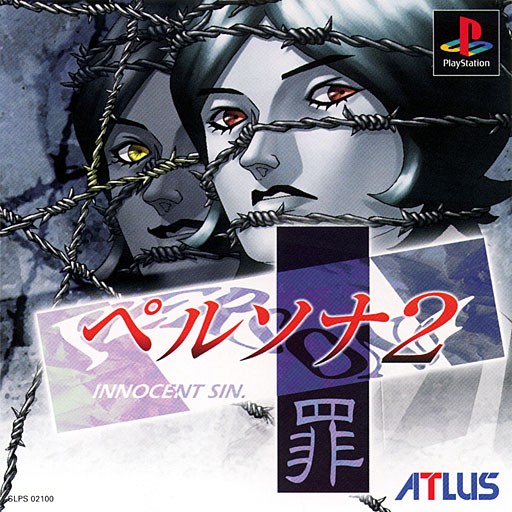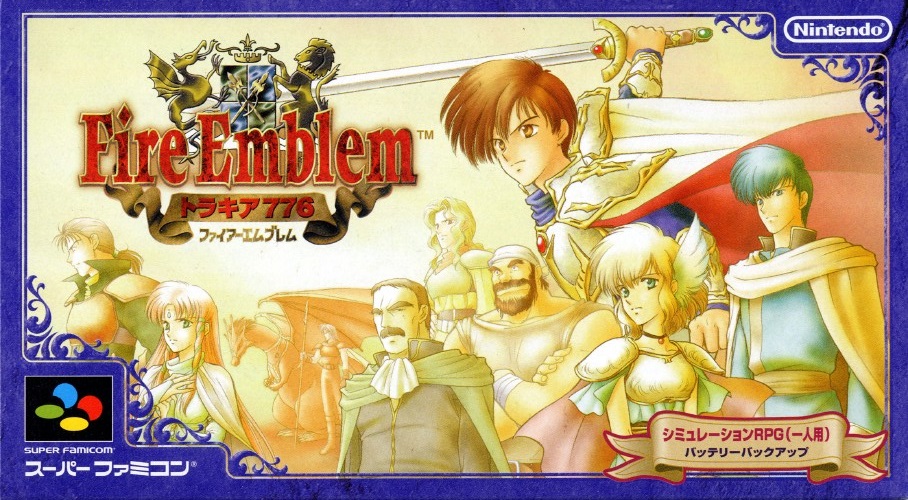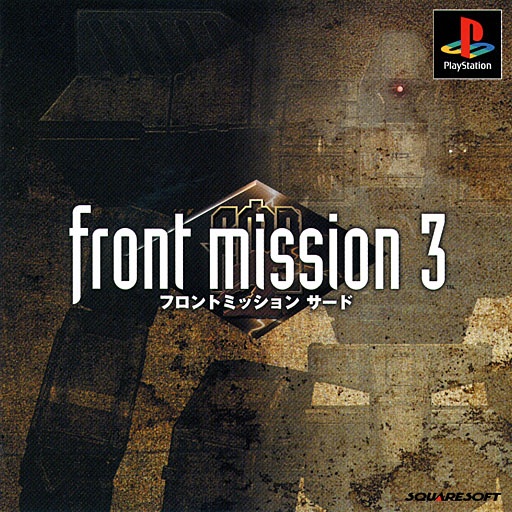Game No. 109

Title: Final Fantasy VIII
Developer: Square
Platform: PlayStation
Release Date: February 11, 1999 (Japan)
Comment: The eight installment in the Final Fantasy series is perhaps best remembered for a number of departures from earlier games in the franchise. Aesthetically, the title distanced itself from the comparatively disproportionate character designs of prior entries in favour of more "realistic" ones; an approach that would be revisited in later installments. In terms of gameplay, the magic point-based spell system, which had been predominant since IV, was scrapped and replaced with the so called Junction system.
The plot features an ensemble cast, with Squall Leonhart, a cadet in a mercenary organization called SeeD, taking center stage. As Squall and company hone their skills at the Balamb Garden military academy the military dictatorship of Galbadia launches an invasion against the dukedom of Dollet. When Dollet employ SeeD for military assistance the administration at Balamb Garden decides to utilize the operation as a field exam for its cadets.
The underlying gameplay foundation of prior entries is maintained in most aspects. Yet, as indicated above, the game does provide additions, alterations, and disposals of various mechanics. As was the case with VII, the primary framework for character customization has been replaced with a new one. Consequently, the Materia system has been scrapped in favour of the aforementioned Junction system. Summons, or Guardian Forces as they are called in this particular installment, are of central importance to this arrangement. When a Guardian Force is assigned to a given character, their options in combat expand beyond merely being able to attack, thus allowing them to cast spells, summon their Guardian Force, use items, and execute a command called Draw.
Since magic points have been scrapped, spells now instead have a finite number of uses before they run out. In order to restock on spells, party members must utilize the Draw command, either on assorted enemies or specific Draw points, which are scattered throughout the world. In addition to usage in battles, spells can also be joined with character attributes and stats, thereby boosting them. Thus, the Junction system not only governs the use of summons and spells, but effectively fills a function provided by armour and/or accessories in earlier entries in the series.
Another feature of note comes in the form of a mini-game called "Triple Triad", a collectible card game which can be initiated with NPCs wherever the player encounters such. Worth mentioning is that this mini-game is actually linked to the Junction system in the sense that cards obtained through matches against various NPCs can be converted into items and spells.
Similarly to gameplay in general, the battle system has seen its fair share of revisions. Each party member now comes with a single unique weapon that is constantly equipped. There are no other weapons available for purchase, but existing weaponry can be upgraded. Limit Breaks make a return, but they now feature a trigger mechanism similar to the Desperation Attacks of VI; a given character's Limit Break will become available once their hit points have been sufficiently reduced. Also, these attacks have been expanded upon in that they now incorporate an element of interactivity, which can range from bestowing them with an accompanying spell to timed button sequences, thereby allowing for players to further strengthen the Limit Breaks. Like summons in other Final Fantasy titles, Guardian Forces can partake directly in fights. Activating them comes with a charge time, however, during which they shield the character linked to them. Guardian Forces come with their own separate amount of hit points, which when depleted by enemy attacks renders them unconscious and cancels the summoning.
The levelling system has been subjected to an overhaul. Firstly, the experience points required to raise levels are fixed at 1000 points, as opposed to the ever increasing amounts of earlier installments. Second, VIII marks the introduction of level-scaled enemies to the franchise. Thirdly, boss battles do not net the party with experience points, although they yield Ability Points. Furthermore, Ability Points gained in combat are distributed among one's Guardian Forces, who automatically accumulate said points towards unlocking special abilities of various kinds. Once obtained, these abilities can be used by any party member who is currently allotted the Guardian Force in question.
The PlayStation version of Final Fantasy VIII has sold nearly 8 million copies worldwide. Critics appear to have been nearly unanimously bestowing the game with commendations. Publications repeatedly delivered praise towards the plot and characterizations, describing the former as featuring multiple layers while complimenting the latter for providing ample time to develop the relationships of the protagonists; reviewers recurrently mentioned the courtship of Squall and Rinoa in this regard. The graphics and Nobuo Uematsu's soundtrack received further laudations, along with the Junction system, which while regarded by certain writers as "dense" received plentiful approval for its manifold customization possibilities, and its perceived lasting value, which when taking side quests into account has been projected to provide roughly 60 hours of time investment to fully finish. Still, the title did not completely escape criticism, as several critics argued that the in-game depiction of its art direction was held back by the aging hardware of the PlayStation. Additionally, while the application of CGI-cinematics as a vehicle to narrate the story had been yet another subject of praise for VII, reviewers' sentiments seem to have shifted in VIII's disfavour in this respect, as a number of them expressed opinions that the various cut-scenes relied on motion picture presentation techniques which they thought could have been replaced with in-game sequences that featured more interaction.

Title: Final Fantasy VIII
Developer: Square
Platform: PlayStation
Release Date: February 11, 1999 (Japan)
Comment: The eight installment in the Final Fantasy series is perhaps best remembered for a number of departures from earlier games in the franchise. Aesthetically, the title distanced itself from the comparatively disproportionate character designs of prior entries in favour of more "realistic" ones; an approach that would be revisited in later installments. In terms of gameplay, the magic point-based spell system, which had been predominant since IV, was scrapped and replaced with the so called Junction system.
The plot features an ensemble cast, with Squall Leonhart, a cadet in a mercenary organization called SeeD, taking center stage. As Squall and company hone their skills at the Balamb Garden military academy the military dictatorship of Galbadia launches an invasion against the dukedom of Dollet. When Dollet employ SeeD for military assistance the administration at Balamb Garden decides to utilize the operation as a field exam for its cadets.
The underlying gameplay foundation of prior entries is maintained in most aspects. Yet, as indicated above, the game does provide additions, alterations, and disposals of various mechanics. As was the case with VII, the primary framework for character customization has been replaced with a new one. Consequently, the Materia system has been scrapped in favour of the aforementioned Junction system. Summons, or Guardian Forces as they are called in this particular installment, are of central importance to this arrangement. When a Guardian Force is assigned to a given character, their options in combat expand beyond merely being able to attack, thus allowing them to cast spells, summon their Guardian Force, use items, and execute a command called Draw.
Since magic points have been scrapped, spells now instead have a finite number of uses before they run out. In order to restock on spells, party members must utilize the Draw command, either on assorted enemies or specific Draw points, which are scattered throughout the world. In addition to usage in battles, spells can also be joined with character attributes and stats, thereby boosting them. Thus, the Junction system not only governs the use of summons and spells, but effectively fills a function provided by armour and/or accessories in earlier entries in the series.
Another feature of note comes in the form of a mini-game called "Triple Triad", a collectible card game which can be initiated with NPCs wherever the player encounters such. Worth mentioning is that this mini-game is actually linked to the Junction system in the sense that cards obtained through matches against various NPCs can be converted into items and spells.
Similarly to gameplay in general, the battle system has seen its fair share of revisions. Each party member now comes with a single unique weapon that is constantly equipped. There are no other weapons available for purchase, but existing weaponry can be upgraded. Limit Breaks make a return, but they now feature a trigger mechanism similar to the Desperation Attacks of VI; a given character's Limit Break will become available once their hit points have been sufficiently reduced. Also, these attacks have been expanded upon in that they now incorporate an element of interactivity, which can range from bestowing them with an accompanying spell to timed button sequences, thereby allowing for players to further strengthen the Limit Breaks. Like summons in other Final Fantasy titles, Guardian Forces can partake directly in fights. Activating them comes with a charge time, however, during which they shield the character linked to them. Guardian Forces come with their own separate amount of hit points, which when depleted by enemy attacks renders them unconscious and cancels the summoning.
The levelling system has been subjected to an overhaul. Firstly, the experience points required to raise levels are fixed at 1000 points, as opposed to the ever increasing amounts of earlier installments. Second, VIII marks the introduction of level-scaled enemies to the franchise. Thirdly, boss battles do not net the party with experience points, although they yield Ability Points. Furthermore, Ability Points gained in combat are distributed among one's Guardian Forces, who automatically accumulate said points towards unlocking special abilities of various kinds. Once obtained, these abilities can be used by any party member who is currently allotted the Guardian Force in question.
The PlayStation version of Final Fantasy VIII has sold nearly 8 million copies worldwide. Critics appear to have been nearly unanimously bestowing the game with commendations. Publications repeatedly delivered praise towards the plot and characterizations, describing the former as featuring multiple layers while complimenting the latter for providing ample time to develop the relationships of the protagonists; reviewers recurrently mentioned the courtship of Squall and Rinoa in this regard. The graphics and Nobuo Uematsu's soundtrack received further laudations, along with the Junction system, which while regarded by certain writers as "dense" received plentiful approval for its manifold customization possibilities, and its perceived lasting value, which when taking side quests into account has been projected to provide roughly 60 hours of time investment to fully finish. Still, the title did not completely escape criticism, as several critics argued that the in-game depiction of its art direction was held back by the aging hardware of the PlayStation. Additionally, while the application of CGI-cinematics as a vehicle to narrate the story had been yet another subject of praise for VII, reviewers' sentiments seem to have shifted in VIII's disfavour in this respect, as a number of them expressed opinions that the various cut-scenes relied on motion picture presentation techniques which they thought could have been replaced with in-game sequences that featured more interaction.



















